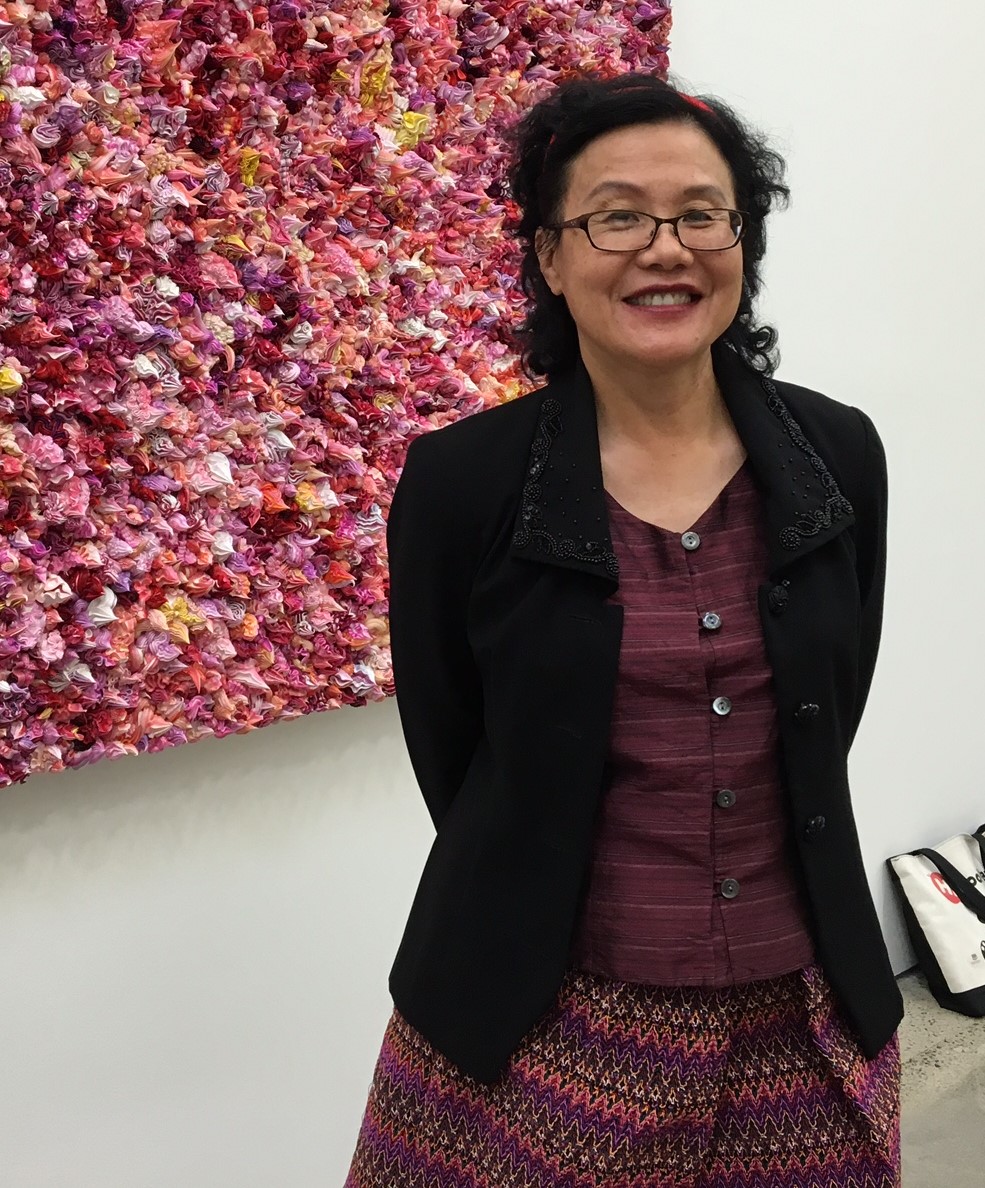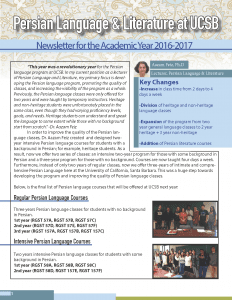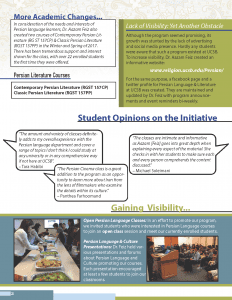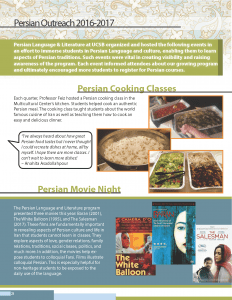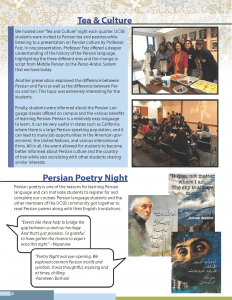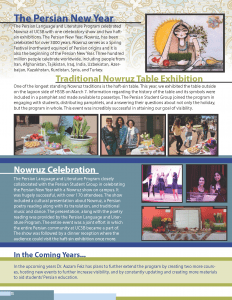Mayfair Yang 楊美惠
About:
Mayfair Yang is a 50% faculty member in Department of Religious Studies and 50% in Department of East Asian Languages & Cultural Studies, where she is the Department Chair.She is a cultural anthropologist interested in the intertwined processes of religiosity, secularization, and state operations in Chinese modernity. Areas of research and teaching: Chinese religions & secularization; critical theory; environmental humanities, China Studies, sovereignty and state power; gender and feminism; media studies; cultural approaches to political economy. Her new area of research is religious environmentalism or religion, ecology, and environmental ethics and ontologies.
She specializes in the study of China, with an interest in Sinophone cultures of Taiwan, Hong Kong, Southeast Asia and the West. Although her research is based on fieldwork in contemporary China and Taiwan, it is always informed by a vision of the longue durée of Chinese social history, and she seeks to integrate Western critical theory with Chinese philosophy and Chinese empirical findings.
She has been visiting scholar at the University of Michigan, University of Chicago, Beijing University, Academia Sinica in Taiwan, Institute for Advanced Study in Princeton, Center for the Study of World Religions at Harvard University, Fudan University in Shanghai, and Max Planck Institute for the Study of Religious and Ethnic Diversity in Goettingen, Germany. Yang was Director & Professor of Asian Studies at the University of Sydney in Australia 2007-09.
Research:
With a five-year National Science Foundation research grant, Yang conducted fieldwork in rural Wenzhou, China since 1991 on the revival of popular religion and their negotiations with state secularization. She has published on media, gift economy, and women, gender, and nationalism in China. She is currently researching the topic of Chinese religio-environmental ethics and practice.
杨美惠教授,美籍华裔人类学家。出生于台北市,在多国长大, 在加州上高中,大学。80 年代在北京大学作交换研究生。获美国伯克利加州大学人类学专业博士学位。现任美国加州大学圣塔芭芭拉宗教学系及东亚语言与文化研究系教授,也是本校孔子学院院长。曾任澳大利亚悉尼大学亚洲研究中心主任、中央民族大学”985工程”短聘教授。
杨美惠教授长期致力于中国研究的理论化,从1980年代开始多次到中国从事调查研究,其著述以对中国社会人情往来的”礼物”的”关系学”探讨而著称。其 代表性著作 Gifts, Favors, and Banquets: the Art of Social Relationships in China 现已在台北翻译出版,该书简体中文版《礼物,关系学与国家:中国人际关系与主体性建构》,2009年由江苏人民出版社出版。此外,她在国际重要学术杂志上发表论著,其中包括”横跨台湾海峡的女神妈祖:国家,进香,和卫星电视”、”关系的力量”和”传统,旅行的人类学,与中国的现代性话语” 等数篇中文论文,并曾主编学术文集 《中华妇女的跨国公共空间》 (Spaces of Their Own: Women’s Public Sphere in Transnational China, 1999)与 《中国人的宗教感:现代性的痛苦与国家构建》(Chinese Religiosities: Afflictions of Modernity and State Formation,2008)。其新作《中国环保道德:宗教,本体论,实践》(Chinese Environmental Ethics: Religions, Ontologies, and Practices, 2021) 與 《现代性的重魅:温州的礼仪经济与社会》(Re-enchanting Modernity: Ritual Economy & Society in Wenzhou, China, 2020) 将更集中地呈现她对中国民间社会的一贯关注和近些年来的思考。开展的新课题为:中国宗教的环保主义。
Publications:
Chinese Environmental Ethics: Religions, Ontologies, and Practices. Edited by Mayfair Yang. Lanham: Rowman & Littlefield Publishing Co. 2021

Re-enchanting Modernity in China: Ritual Economy & Religious Civil Society in Wenzhou. Durham: Duke University Press (2020).

 Gifts, Favors, and Banquets: the Art of Social Relationships in China. Cornell University Press, (1994). (American Ethnological Society Book Prize, 1997)
Gifts, Favors, and Banquets: the Art of Social Relationships in China. Cornell University Press, (1994). (American Ethnological Society Book Prize, 1997)
- 《礼物,关系学,与国家:中国人际关系与主体性建构》 杨美惠著。 江苏人民出版社,2009 年 (Mainland China public., slightly censored)
- 《禮物,關係學,與國家﹕ 中國人際關係與主體性建構》楊美惠著. 台北: 南天書局. (Taiwan public., uncensored)
 Chinese Religiosities: Afflictions of Modernity and State Formation. Mayfair Yang, editor. Berkeley: University of California Press (2008).
Chinese Religiosities: Afflictions of Modernity and State Formation. Mayfair Yang, editor. Berkeley: University of California Press (2008).
 Spaces of Their Own: Women’s Public Sphere in Transnational China. Mayfair Yang, editor. University of Minnesota Press, (1999).
Spaces of Their Own: Women’s Public Sphere in Transnational China. Mayfair Yang, editor. University of Minnesota Press, (1999).
- Books in-progress:
- 1) Religious Environmentalism in the Age of the Anthropocene: Potentialitites and Actualities in Coastal China.
- 2) Religiosity, Sovereignty, and Modernity in Coastal China.
Articles:
- “National allegory, body and gender performativity: Chinese media in the context of K-pop and American Rambo” in Routledge Handbook of Chinese Gender & Sexuality, edited by Hongwei Bao and Jamie Zhao. (submitted)
- “Chinese Popular Religion and Economy” in Oxford Handbook of Religion and Economic Ethics, edited by Albino Barrera and Roy Amore. Oxford: Oxford University Press (forthcoming, 2023).
- “Mauss or Bataille? Gifts, Sacrifice, and Feasting Across China and the Northwest Coast” in Mauss International, No. 2, November 2022
- Yang Mauss or Bataille 2022
- “From Sovereignty to Governmentality and Back: China and the U.S.” in Social Anthropology / Anthropologie Sociale (journal of European Association for Social Anthropologists), special issue on Covid-19. June 2020.
- “礼物和宴会的两个逻辑:中国和西北海岸的谱系” (“Two Logics of Gifts and Banquets: Genealogies in China and the Northwest Coast”) in 《西北民族研究》(Northwest Ethnological Studies),网络首发:2019.8.5
- https://doi.org/10.16486/j.cnki.62-1035/d.20190803.007
- 礼物和宴会的两个逻辑_中国和西北海岸的谱系_杨美惠 2019
- “Chinese Maritime Economy: Historical Globalizing Forces” in China, India and Alternative Modernities. Kumar, Sanjay, Satya P Mohanty, Archana Kumar and Raj Kumar, eds. New York: Routledge, 2019.
- “My Father’s Hometown, 1982” in China Tripping: Encountering the Everyday in the People’s Republic, edited by Jeremy Murray, Paul Pickowicz, & Perry Link. Rowman & Littlefield Publ. Co., 2019.
- “Millenarianism in the Soviet Union and Maoist China” in The Immanent Frame (an academic blog sponsored by Social Science Research Council), November 2018. https://tif.ssrc.org/2018/11/23/millenarianism-in-the-soviet-union-and-maoist-china/
- Millenarianism in the Soviet Union & Maoist China
- “Shamanism & Spirit Possession in Chinese Modernity: Some Preliminary Reflections on a Gendered Religiosity of the Body” in Review of Religion and Chinese Society, vol. 2, pp. 51-86, 2015. Download PDF
-
- “Gazing into the Future of Religion and the State in China” in The Immanent Frame (an academic internet blog), Nov. 2013. http://blogs.ssrc.org/tif/2013/11/14/gazing-into-the-future/
- “The Future of China’s Past: An Interview with Mayfair Yang” with Nathan Schneider, in The Immanent Frame (an academic internet blog), Oct. 2010. http://blogs.ssrc.org/tif/2010/09/23/the-future-of-chinas-past/
- “Postcoloniality & Religiosity in Modern China: the Disenchantments of Sovereignty” in Theory, Culture and Society, vol. 28, no. 2, pp. 3-45. Electronic Version Here
- “‘温州模式’的礼仪经济”(” ‘The Wenzhou Model’s’ Ritual Economy” ) in 《学海》 (Sea of Scholarship), Sept. 2009. Electronic Version Here
- “Thoughts on Postcoloniality & Modern Chinese Religiosities” in 《社会学人类学刊》(Journal of Sociology & Anthropology),Nov. 2009.
- “Ritual Economy and Rural Capitalism with Chinese Characteristics” in Cultural Politics in a Global Age: Uncertainty, Solidarity and Innovation. David Held & Henrietta Moore, eds. Oxford: Oneworld Publications, 2007. Electronic Version Here
- “A Sweep of Red: State Subjects and the Cult of Mao” in Religion und Politik in der Volksrepublik China (Religion and Politics in Contemporary China). Wiebke Koenig, Matthias Koenig, and Karl-Fritz Daiber, eds. Würzburg: Ergon-Verlag, 2006.
- “Spatial Struggles: State Disenchantment and Popular Re-appropriation of Space in Rural Southeast China” in Journal of Asian Studies, (August, 2004). Electronic Version Here
- “Goddess across the Taiwan Straits: Matrifocal Ritual Space, Nation-State, and Satellite Television Footprints” in Public Culture (May, 2004) available at: http://repositories.cdlib.org/gis/31/
- “The Resilience of Guanxi and its New Deployments: A Critique of Some New Guanxi Scholarship” in China Quarterly (June 2002). Electronic Version Here
- “Using the Past to Negate the Present: Ritual Ethics and State Rationality in Ancient China” in Religion: A Reader in the Anthropological Tradition. Michael Lambek, ed. Oxford: Blackwell, 2002.
- “Une histoire du present: Gouvernement rituel et gouvernement d’Etat dans la Chine ancienne“, in Annales, no. 5, Sept.-Oct. (in French, 1991). Electronic Version Here
- “Mass Media and Transnational Subjectivity in Shanghai: Notes on (Re)cosmopolitanism in a Chinese Metropolis” in The Anthropology of Globalization: A Reader. Jonathan Inda and Renato Rosaldo, eds. Oxford: Blackwell (2002). Electronic Version Here
- “Putting Global Capitalism in its Place: Economic Hybridity, Bataille, and Ritual Expenditure” in Current Anthropology, vol. 41, no. 4, (2000). Electronic Version Here
- “Film Discussion Groups in China: State Discourse or a Plebeian Public Sphere?” in Visual Anthropology Review, 1994, vol. 10, no. 1. Film Discussion Groups 1994
- “The Gift Economy and State Power in China”, Comparative Studies in Society & History, vol. 31, no. 1, January (1989). Electronic Version Here
- “The Modernity of Power in the Chinese Socialist Order”, Cultural Anthropology, v. 3, no. 4, November (1988).
Documentaries:
- “Through Chinese Women’s Eyes” (1997) 50-minute documentary comparing Chinese urban women’s lives during the era of state feminism and gender erasure during the Maoist era, with the current era of commercialization, featuring gender difference, commodification of sexuality, and globalization. Film includes clips of Cultural Revolution and “revolutionary model operas”, as well as interviews with urban workers, intellectuals, and social workers in Shanghai and Beijing. (distributed by Women Make Movies: info@wmm.com and screened at the Creteil Women’s International Film Festival in Paris, France).
- Video Clip 1
- Video Clip 2
- To order this film, click here: http://www.wmm.com/filmcatalog/pages/c414.shtml
- “Public & Private Realms in Rural Wenzhou, China” (1994) 50-min. documentary about changes in a local community in rural southeast China: scenes of market economy, plowing of rice paddy, household factories, deity temple festival, lineage ancestor hall, Old People’s Association, Catholic Church, and private school (formerly distributed by U.C. Media Extension)
- (video clip in Quicktime link – takes a few seconds to load )
- (To order this film, please contact the filmmaker, Mayfair Yang, directly at: yangm@religion.ucsb.edu. Only DVD’s available to institutions for $50.00 (+ $5 domes. shipping) and for private individuals for $25.00 (+ $5 domes. shipping). No rentals.
Courses Taught:
- “Religious Environmentalism & Science in the Anthropocene: Asia and the U.S.” (EACS/Relig Stud 128 Undergrad lecture class)
- “Religious Environmentalism in the Anthropocene” (EACS/Relig Stud 228 grad seminar)
- “Religious Environmentalism in China and the U.S.” (INT 84BD Freshman Honors Seminar)
- “Critical Theory” (Relig Stud 200D)
- “Anthropology of Religion” (Relig Stud / EACS 156A)
- “Contemporary Chinese Religions (Relig Stud/Chinese 32)
- “Ethnographic Approaches to the Study of Religious Life” (Relig Stud 292EG)
- “Anthropology of China” (Chin 242; EACS 103A)
- “Theory & Method in East Asian Cultural Studies” (East Asian 215)
- “China Through Film” (Chinese 171)
- “Problems in the Study of Religion” (Relig Stud 104)
- “Sovereignty & Governmentality” (Relig Stud 273)
- “Anthropology of Religion” (Relig Stud 204)
- “Theory and Method for East Asian Studies” (East Asian 215)
- “Gender & Sexuality in Modern Asia” (East Asian 40)
- “Religious Practices & the State in China” (Relig Stud 183B)
- “Contemporary Issues in Cultural Anthropology” (Anthro 229C)
- “Anthropology of Gender” (Anthro 125)
- “Anthropology of Media, Gender and Globalization” (Anthro 255)
- “Modernity and East Asia,” (Anthro 154)
- “Anthropology of the State,” (Anthro 216)
- “Religion, Modernity, and Politics” (Anthro 250MY)
- “Elements of Traditional Chinese Culture,” (Anthro 138A)
- “Contemporary Chinese Society.” (Anthro 138B)








